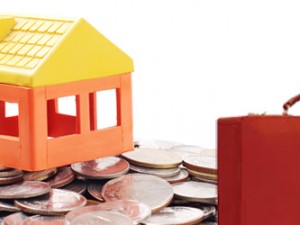
Buying a property to be used as a home versus buying as an investment – what are the main things to take into account?
There are two main reasons that people buy a property: as the perfect home for themselves and their family, or as an investment that they plan to make money on, either now or in the future. However, these reasons are not mutually exclusive: if you are buying a new home to live in you may also hope to make money on the property when the time comes to sell-up and move-on. So what are the main things that you should bear in mind whether you are buying a property as an investment, as a home to live in, or as both?
Whether buying a home to live in or a property to rent-out with capital growth potential, there are a number of considerations that you could take into account to maximise the value of the property and ensure that the property that you buy is right for you.
What is important if you are buying a home?
- A property that fits with your lifestyle. Whether you have 2.4 children or are nearing retirement, you will have specific requirements to accommodate your family’s needs, be it three decent-sized bedrooms or a property without stairs and with easy access.
- How much work will I have to do? Is the property in move in condition or does it need a lot of renovation? Which can I afford? Remember that you might be able to get a mortgage for a significant proportion of the price of the property but you usually can’t fund the renovations through the mortgage.
- Proximity to local amenities. Local schools, shops and green spaces can be important considerations.
What is important to the investor?
- Who is my target market? A property bought with a view to letting to students may be quite different to a property that is aimed at single professionals.
- Which areas and property types appeal to my target market? Once the investor knows who they would like to rent to, they can choose the type of property and the area.
- Rental yield potential, capital growth potential and return on investment.
- Can I afford to deal with void periods or bad tenants?
What items should be considered by both investors and home buyers?
- Will the improvements I’m making enhance the value of the property?
- How much will I need to spend on upkeep and unexpected repairs and should I buy the best or spend the least when repairing?
- Is property in the area that I am buying in likely to increase in value?
- Changing interest rates and mortgage payments: can I afford the payments in the long term if rates go up?
- What will the additional costs be when purchasing? You have to take account of LBTT, conveyancing fees as well as other governmental fees such as that for registering the Disposition (the document that transfers title of the property from the seller to the buyer).
Although investors and homebuyers have a number of common considerations, the way that you deal with each may be different, depending on your motives.
For instance, a family may benefit more from turning a spare bedroom in their home into another bathroom to reduce the queue for the shower in the morning before work and school, but an investor will probably be keen to maximise the number of bedrooms as this both increases the potential rent and helps to ensure that the house will achieve more if it is sold.
Another example may be, when renovating a bathroom, that a couple decides to realise their dream of fitting a whirlpool bath, which could well be desirable to the next potential owners when they decide to sell, while an investor may decide to replace the bath with a more cost-effective model as it may get damaged by tenants and therefore may need to be replaced more often.
There is no right or wrong answer here, as whatever works for you in your particular situation will clearly be the best solution for you.
However, if you are looking to maximise the potential value of your property come selling time then, whether you are an investor or you are living in your property, it may still be useful to keep in mind some of the above points and make a decision based on what works both for you at that moment as well as what will help you to sell and achieve the very best price when the time comes to sell.

















